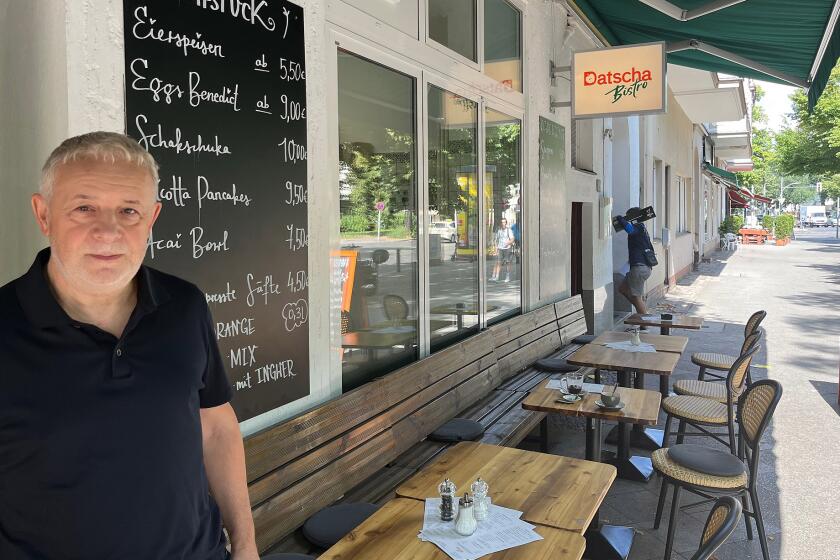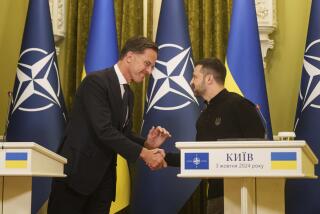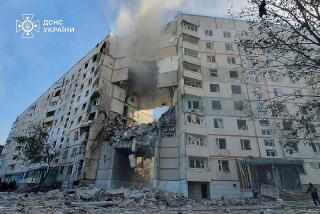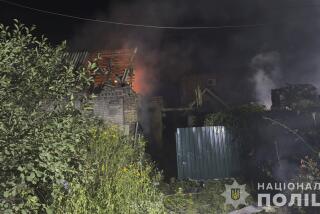U.N. monitors head to Ukrainian nuclear plant caught in storm of shelling
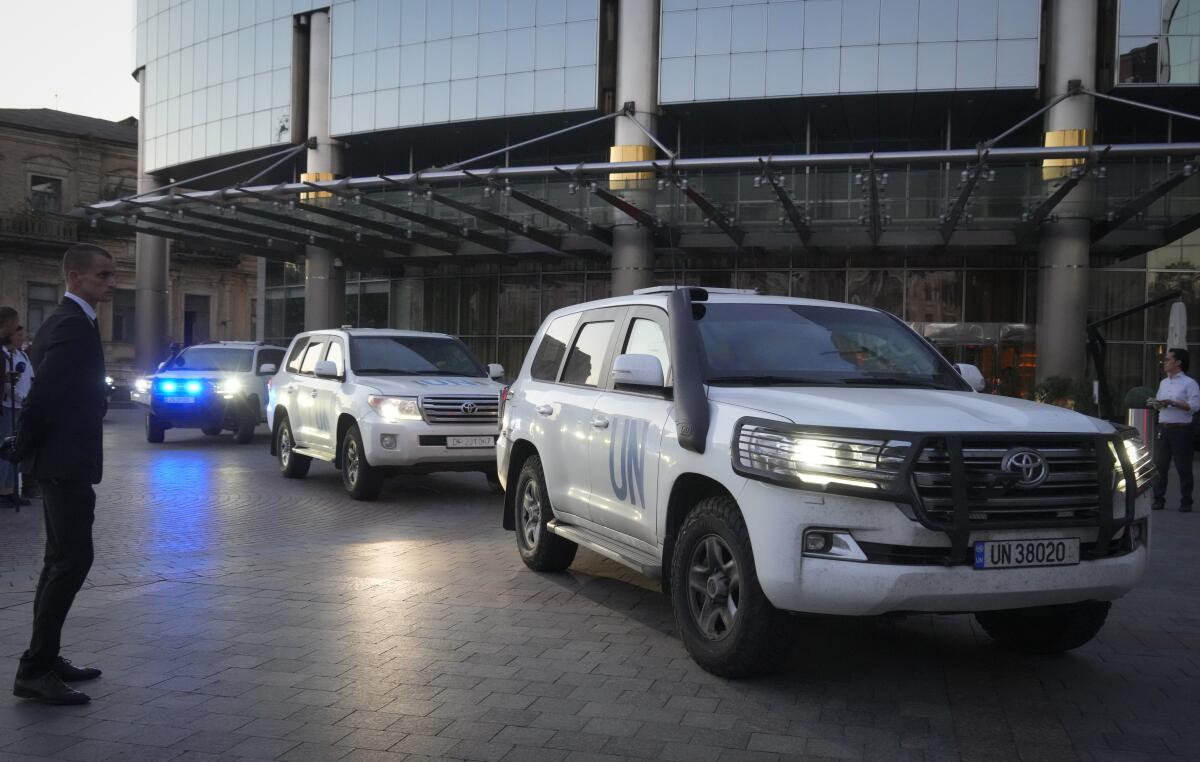
- Share via
KYIV, Ukraine — A team of U.N. inspectors made its way toward Ukraine’s Zaporizhzhia nuclear power plant Wednesday on a perilous, long-sought mission to safeguard the site and prevent a catastrophe from the fighting raging around it.
Underscoring the danger, Kyiv and Moscow again accused each other of shelling the area around the complex overnight. Zaporizhzhia is the biggest nuclear plant in Europe.
Fighting in early March caused a brief fire at its training complex, and in recent days the plant was temporarily knocked offline because of damage, heightening fears of a radiation leak or a reactor meltdown. Officials have begun distributing anti-radiation iodine tablets to nearby residents.
The complex has been occupied by Russian forces but run by Ukrainian engineers since the early days of the 6-month-old war. Ukraine alleges Russia is using the plant as a shield, storing weapons there and launching attacks from around it, while Moscow accuses Ukraine of recklessly firing on the place.
For months, as the fighting has played out, the head of the International Atomic Energy Agency has sought access to the plant for an unprecedented wartime mission, and world leaders have demanded that the U.N. watchdog be allowed to inspect it.
The U.N. convoy of vans and SUVs finally set out from Kyiv early Wednesday and arrived in the afternoon in the city of Zaporizhzhia, still about 70 miles from the plant. Ukrainian authorities said the team would stay in the city overnight and attempt to enter the plant Thursday.
IAEA chief and mission leader Rafael Grossi said the “real work” will start Thursday. He underscored the challenges ahead.
“It’s a mission that seeks to prevent a nuclear accident and to preserve this important — the largest, the biggest — nuclear power plant in Europe,” he said.
He said an initial tour will take a few days, after which “we will have a pretty good idea of what’s going on.” Grossi said he had received “explicit guarantees” from Russia that the 14 experts would be able to do their work.
Grossi said he is hoping the IAEA will be able to establish a “continued presence” at the plant to safeguard it against an accident.
Germany is home to one of the world’s biggest Russian diaspora communities, but the Ukraine war has sparked incidents of ostracism and discrimination.
The world watched the mission’s progress with anxiety. European Union foreign policy chief Josep Borrell renewed a call to Russia to fully demilitarize the area around the plant.
“They are playing games. They are gambling with the nuclear security,” Borrell said. “We cannot play war games in the neighborhood of a site like this.”
While the inspectors were on their way, Russia-backed local authorities accused Ukrainian forces of repeatedly shelling the plant grounds and city where it is, Enerhodar. They said drone strikes hit the plant’s administrative building and training center.
Yevhen Yevtushenko, head of the administration in the Ukrainian-held city of Nikopol, across the Dnieper River from the plant, alleged that the attacks were carried out by the Russians in a bid to make Ukraine look like the culprit.
Kyiv is seeking international assistance in taking back control of the area.
“We think that the mission should be a very important step to return [the plant] to Ukrainian government control by the end of the year,” Ukrainian Energy Minister German Galushchenko said.
In other developments:
— Russia’s Gazprom stopped the flow of natural gas through a major pipeline to Western Europe early Wednesday for what it said would be a three-day shutdown for routine maintenance. German authorities cast doubt on that explanation.
— EU countries agreed to make it more time-consuming and costly for Russian citizens to get visas to enter the 27-nation bloc. They failed to reach a consensus on an outright tourist ban in response to Russia’s invasion of Ukraine.
— Ukrainian officials said that automatic weapons fire was heard on the streets of the southern city of Kherson and that Russian soldiers were searching homes for anti-Russian partisans. A surge in fighting in the region this week stirred speculation early that Ukraine was beginning a counteroffensive to retake territory.
Russian forces heavily shelled military and civilian sites in more than a dozen towns and villages in the Kherson region and the neighboring Zaporizhzhia region, said Yaroslav Yanushevych, the Ukrainian governor of the Kherson region.
— Four people were killed and two wounded in Russian rocket attacks in the Donetsk region in the east, Ukrainian authorities said.
More to Read
Sign up for Essential California
The most important California stories and recommendations in your inbox every morning.
You may occasionally receive promotional content from the Los Angeles Times.
